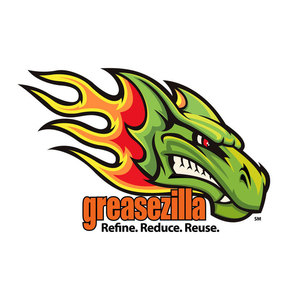Wastewater facilities incorporate Greasezilla technology

October 13, 2022
BY Downey Ridge Environmental Co.
Downey Ridge Environmental Co., developer of Greasezilla FOG (fats, oils & grease) separation and processing system, announces a significant increase in the number of wastewater facilities incorporating Greasezilla into their operations. The industry’s urgency to protect wastewater infrastructure combined with new funding established through the U.S. Infrastructure Investment and Jobs Act (2021) and the EPA’s expansion of renewable identification number (RIN) credits for low carbon-intensity (CI) biofuel feedstocks, is propelling interest in Greasezilla systems. Greasezilla’s ecological process, packaged into a turnkey, highly-automated system, not only reduces costs and mitigates landfilling, but also creates new operational profits for wastewater treatment facilities.
Prominent wastewater engineering and operations companies like Woodard & Curran are partnering with Greasezilla to incorporate its innovative technology at projects across the United States. In the coming weeks, the wastewater treatment facility contract operated by Woodard & Curran for the City of Groveland, Florida, is preparing to bring a newly installed Greasezilla system online to handle the plant’s FOG processing and disposal.
“As we strive to meet the specific, unique needs of each of our clients, we select solutions that provide the greatest benefit to their operational, sustainability and financial goals,” said Jay Sheehan, PE, senior vice president with Woodard & Curran, “Greasezilla has proven to be the right fit for projects like Groveland that are focused on resource recovery and waste reduction.”
Advertisement
Advertisement
Utilities spend billions of dollars each year unclogging or replacing FOG-obstructed pipes, repairing pump stations, cleaning up sewer backups and keeping FOG from damaging plant equipment. Many wastewater facilities still receive FOG without upstream processing, leaving it to be co-treated alongside wastewater.
“Any plant taking FOG into their facilities is experiencing the same challenge, spurring Greasezilla’s growth in the sector,” said Ron Crosier, president, Greasezilla. “Utilities are always looking to safeguard their infrastructure and endorse best practices, and Greasezilla is helping them achieve those goals, leading to lower costs, greater efficiency and improved resource recovery for long-term sustainability.”
Greasezilla supports pretreatment programs at facilities that accept FOG by providing an ecological and cost-effective process that diverts FOG from the waste stream. The system’s ability to separate FOG into pasteurized water, advanced biofuel (ABF) and batter reduces costs associated with FOG treatment and disposal while generating revenue from biofuel sales. Greasezilla works without polymers, flocculants or other additives, and is fueled by about five percent of the ABF it generates.
Advertisement
Advertisement
The company guarantees that Greasezilla’s biofuel output is a saleable commodity. Greasezilla’s advanced biofuel is an RIN-qualified feedstock for biodiesel, renewable diesel, sustainable aviation fuel and heating oil. Global demand for biofuels and low-CI feedstocks adds to Greasezilla’s ABF value. Greasezilla offers clients a service to manage sales of the biofuel offtake on their behalf.
Greasezilla is working closely with wastewater treatment sites in New England, New York, New Jersey, the mid-Atlantic, Tennessee, Georgia, Florida and Texas, and expects to install a minimum of 10 new systems at wastewater plants by the end of 2023. Additionally, Hampton Roads Sanitation District (HRSD) is nearing completion of its state-of-the-art fats, oils, and grease (FOG) receiving facility at its Nansemond Treatment Plant in Suffolk, Virginia. Scheduled to open in Q1 2023, the FOG receiving facility will utilize Greasezilla to separate and process FOG into advanced biofuel.
Related Stories
CountryMark on July 22 celebrated the completion of more than $100 million in upgrades at its refinery in Indiana, including those related to soybean oil storage. The facility produces renewable diesel via coprocessing technology.
ATOBA Energy and Air Moana are partnering to implement scalable solutions for the supply of SAF. The collaboration aims to ensure long-term SAF availability while supporting local initiatives to develop sustainable fuel production in Tahiti.
Neste Corp. on July 24 released second quarter results, reporting record quarterly renewable product sales volumes despite weaker margins. SAF sales were up nearly 80% when compared to the first quarter of 2025.
Valero Energy Corp. on July 24 released second quarter results, reporting a profitable three-month period for its ethanol segment. The renewable diesel segment posted a loss, but the company’s new sustainable aviation fuel (SAF) unit operated well.
The IRS on July 21 published a notice announcing the 2025 calendar-year inflation adjustment factor for the Section 45Z clen fuel production credit. The resulting adjustment boosts maximum the value of the credit by approximately 6%.
Upcoming Events










